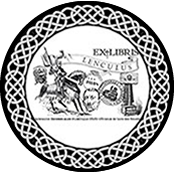Carl Jung on Identity, collective unconscious, and Racial Soul
Carl Gustav Jung (July 26, 1875 – June 6, 1961) was a Swiss psychiatrist, an influential thinker and the founder of analytical psychology. His grandfather, also known as Karl Gustav Jung (1794-1864) was the second Grand Master of the Grande Loge Suisse Alpina from 1850 to 1856, then alligned with Grand Orient freemasonry. His work was largely overshadowed by the quackery of Sigmund Freud.
Jung's approach to psychology has been influential in the field of depth psychology and in countercultural movements across the planet. He emphasized understanding the psyche through exploring the worlds of dreams, art, mythology, world religion and philosophy. Although he was a theoretical psychologist and practicing clinician, much of his life's work was spent exploring other areas, including Eastern and Western philosophy, alchemy, astrology, sociology, as well as literature and the arts. His most notable ideas include the concept of psychological archetypes, the collective unconscious and synchronicity.
Jung emphasized the importance of balance and harmony. He cautioned that modern people rely too heavily on science and logic and would benefit from integrating spirituality and appreciation of unconscious realms. His work in spirituality helped to inspire Alcoholics Anonymous as he found spirituality helps people quit addiction.
Freemasonry - PDF
Omniphi Media




